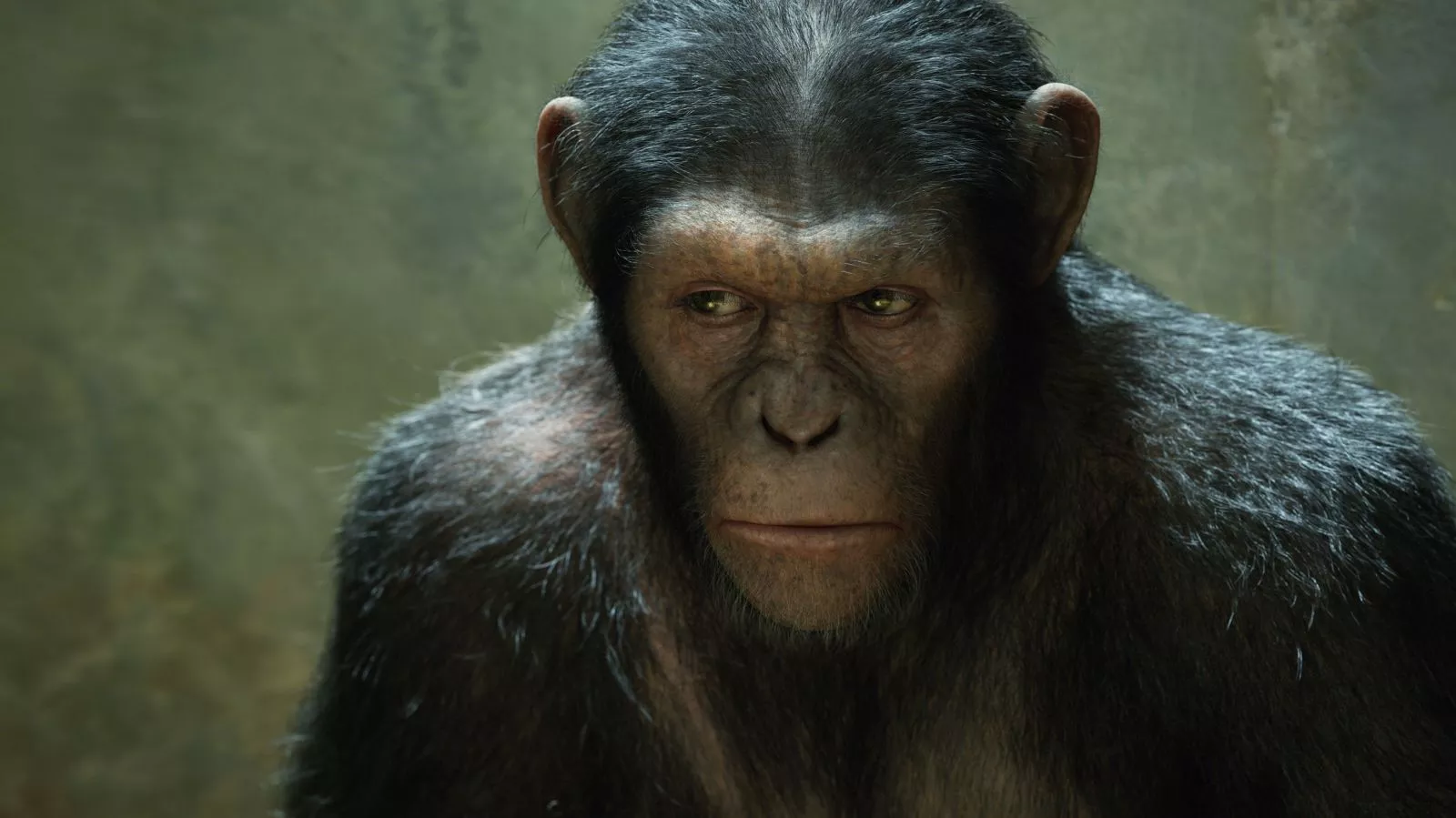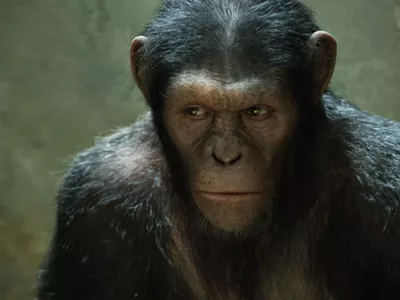
Audio By Carbonatix
[
{
"name": "GPT - Leaderboard - Inline - Content",
"component": "35519556",
"insertPoint": "5th",
"startingPoint": "3",
"requiredCountToDisplay": "3",
"maxInsertions": 100,
"adList": [
{
"adPreset": "LeaderboardInline"
}
]
}
]

Rise of the Planet of the Apes
Directed by Rupert Wyatt. Written by Rick Jaffa, Amanda Silver. Starring James Franco, Freida Pinto, John Lithgow, Brian Cox, Tom Felton and Andy Serkis. Running time: 104 minutes. Rated PG-13.
B-
Back in 2001, actor Andy Serkis was shorted of a well-deserved Oscar nomination. Never heard of him? Well, chances are you've never seen him either. Using motion capture technology and computer graphics to transform his physical appearance, Serkis played Gollum in Peter Jackson's Lord of the Rings trilogy. It was a remarkably haunting and tortured performance that was overlooked because pixels instead of make-up hid the actor's true physical appearance. When one considers the prosthetic nose that landed Nicole Kidman her undeserved 2002 Oscar for The Hours, the snub is particularly galling.
I have little doubt that come February of 2012, Serkis will once again be overlooked for his role in Rise of the Planet of the Apes. And, once again, the decision will be unjust. Because for the very first time, Hollywood has made a film where a flesh and blood actor plays a digital protagonist in the real world. Rupert Wyatt's reboot adaptation of Pierre Boulle's ape epic ups the ante on James Cameron's Avatar by sidelining its human characters (and stars) and putting the narrative focus on Caesar, the CG chimp who would become king. In the process, the movie cements Serkis as a digital acting pioneer, as the actor brings real heart and soulfulness to what would have otherwise been just another very special effect.
As the film's main character, Caesar convincingly evolves from exuberant young chimp to pampered simian prodigy to desperate prisoner to calculating leader. And Serkis' almost wordless performance is what makes the damn thing work. Whether it's the protective love he feels for John Lithgow's Alzheimer-inflicted friend, the despair he expresses after being abandoned to sadistic keepers, or the rage that twists him into an enemy of humanity, Caesar emerges as a complicated and convincing character.
Too bad he and his fellow apes are so much smarter than the movie they're in. Though morally intriguing, Rise of the Planet of the Apes stumbles because it lacks meaningful subtext. The ape films of the late 1960s and early '70s married real ideas and themes to their matinee entertainment, honoring the science fiction roots of Boulle's source novel (or Rod Serling's smart adaptation). Whether it was racial politics, the threat of nuclear war or media celebrity, the movies were about more than just monkey makeup and action. In contrast, Rise is more interested in setting up its franchise and providing insider gags for fans of the original films than developing a blockbuster with big ideas.
More unfortunate are the relentlessly one-dimensional humans that populate the film. James Franco is miscast as a genetic scientist experimenting on a revolutionary new Alzheimer's vaccine. Testing his work on chimps, he discovers that while the curative properties of his virus are temporary (and potentially lethal) to humans, they have profound effects on apes, dramatically increasing their intelligence. Enter a sexy, young primatologist (Slumdog Millionaire's Freida Pinto), a greedy corporate weasel (David Oyelowo), a neighbor with anger management issues, a corrupt primate keeper (Brian Cox) and his sadistic son (Tom Felton). For the film's first half, we spend far too much time in their company, as Caesar's awareness of the world around him develops.
Things become a lot more interesting when Serkis' chimp is finally imprisoned, and thoughts of revolution begin to simmer. Like a simian version of Un Prophet, Wyatt's movie suggests that mankind made Caesar into the insurgent he becomes. This inspires a suspense revolt against the apes' brutal jailers, and a spectacular confrontation with police on the Golden Gate Bridge.
Rise of the Planet of the Apes flirts with the idea that mankind is just getting what it deserves. Except for Lithgow, none of the human characters are particularly sympathetic, suggesting that maybe our time is up and it's brother ape's turn to inherit the planet. Had Wyatt and his writers done a better job of exploring this concept, their addition to the ape canon would have honored the smarter aspects of the genre.





